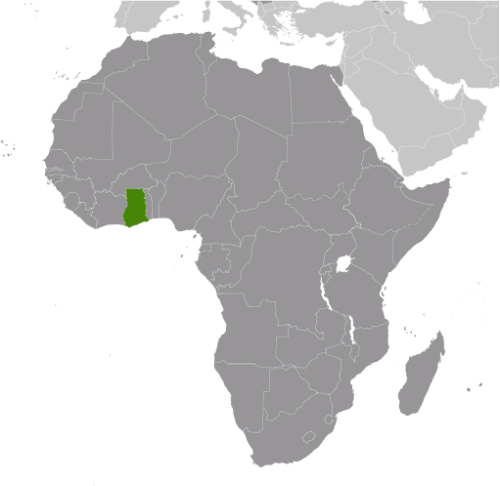Ghana: Community Development
Community development
In Central Ghana, the nation’s poorest region, most people make their living from the land, through fishing and farming, or through small businesses like carpentry, weaving, or market stalls. They are left vulnerable when unexpected changes arise, or disasters hit.
Our partners on this shipment started an NGO in 2013 to help a handful of disadvantaged students, widows and elderly in their community. The project snowballed, and they added programmes in youth job training, counselling in STD prevention and drug awareness, and establishing a small medical clinic. Today their programmes reach more than 2,000 people each year.
They have seen hundreds of vulnerable women and young people trained in skills like soap making and tailoring, who are now able to earn a living from their skills, but they want to scale up. “We want to extend the programmes to five other communities,” they told us. Their plan is to set up mini healthcare centres, bakeries, a palm oil extraction project and coconut farm, all to create jobs and set up thousands more people to be self-sustaining and escape the poverty cycle.
Our shipment will include goods to support their efforts, including electrical equipment, medical and office furniture, household goods, recreational goods for youth, educational books, clothing and more.

Training youth in skills like traditional ‘kente’ weaving (above), woodworking and tailoring, helps preserve and celebrate local traditions while setting up young people to generate their own income or start small businesses.
A ‘hand up’ for bright students in need
When they looked around their community, our partners could see that there were children from impoverished families who were bright and ambitious but couldn’t afford to stay in school. The cost of uniforms, school fees and boarding accommodation for those living far away was simply too great for some families, meaning that students with high potential were missing out. Our partners identified four such students for a pilot project (pictured above) and gave them everything they needed to be able to stay in school, where they are now completing their secondary education and have bright futures ahead! They want to replicate this success by sponsoring more students in other communities, but they’ve asked for help with goods from Crossroads to administer this and other projects.

Expanding their reach
Our partners currently have offices on the ground floor of a school building, but they want to expand to reach five more communities. This needs a capital injection of goods like furniture, household goods and medical equipment, which Crossroads is well-placed to provide!
The expansion will allow them to reach thousands more people in need through training, healthcare and educational projects.
(S5254)

Population: 29.77 million (2018)
Capital: Accra
Official language: English, with many local languages and dialects also spoken
Poverty in Ghana has dramatically improved in recent decades, and the nation is seen as a model of stability, democracy and prosperity in the region, but rural areas are still much poorer than cities. Ghana is a peaceful, multicultural nation with a rich history and diverse landscapes, from savannah to jungles. Our shipment’s target community has a warm tropical climate.
Sources: UNICEF, World Bank

South Africa: Investing more in slum communities
WHO IS THIS SHIPMENT HELPING? In a slum on the outskirts of a South African city, a community group reached out to...
Sierra Leone: Investing in the nation's future
After the end of Sierra Leone’s extended civil war, a group of people who wanted to help the country rebuild decided...
Ukraine: The poor help those even poorer
Crossroads’ Ukrainian partner has, for many years, been working to bridge the gap between rapidly developing cities and rural communities that...


